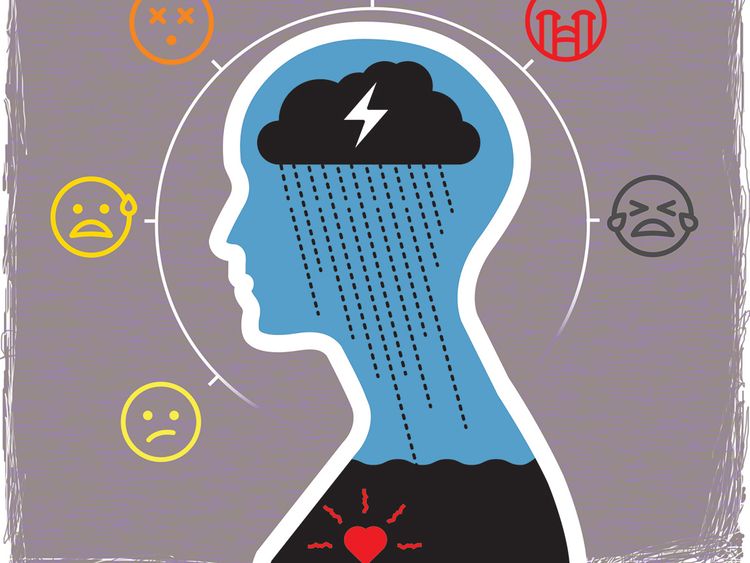Emotional heart versus biological heart

1) Should the next big frontier in treatment and management of heart disease be focusing on the intersection of emotional heart and the biological heart?
Dr Brajesh Mittal: “It is true that emotional state affects the biological state of the body; including the heart. The adverse effects of acute as well chronic stress have been demonstrated in studies. However, the stress should be considered as a factor, a contributor. That is not to say ‘stress causes heart disease’. And like other cardiovascular factors, it is modifiable.”
Dr Firas Raouf: “Absolutely, I totally agree.”
2) Should emotional stress be listed as a key modifiable risk factor for heart disease?
Dr Mittal: “Stress is a very subjective factor. Also, it is not quantifiable the way cholesterol is. I mean there are no defined numbers of volume of stress. So obviously it is more difficult to recognise, assess and modify stress as compared to modification of cholesterol.”
Dr Firas Raouf: “[Yes]. I believe modifying emotional stress can impact significantly the rate of cardiac events. Today, in some parts of the world, there exist therapy systems targeted at minimising life stresses to minimize effects of stress on the body in general and cardiovascular health specifically. The challenge with emotional stresses is that no quantifiable markers have been yet defined that can be used to monitor the level of stress a human body is being actively exposed to.”
3) Cardiologists are not counsellors. Comment.
Dr Mittal: “I believe all the physicians are de facto counsellors. Whenever we treat a patient, we almost always end up giving some psychological counseling – it may be subtle, indirect or sometimes more direct. The role of medicine is to provide physical, mental and emotional well being; not just the drug prescription.”
Dr Raouf: “I don’t think it will blur the line. Since the psychological aspect is considered an integral part in many aspects of healthcare delivery, I think this would rather strengthen the collaboration and inter-referral practice between both teams, psychologists and clinicians. Just like psychologists are not clinical scientists, clinicians are not as equipped as their psychologist colleagues to deliver the proper psychological care their patients might need.”
4) Can one die from a broken heart?
Dr Mittal: “People can die from stress-induced cardiomyopathy; though, in most cases it is reversible, and heart function returns to normal after several days.”
Dr Raouf: “Patients who suffer “Broken Heart Syndrome”, can be perfectly healthy people prior to their exposure to a dramatic emotional stressful event, predating the onset of this condition and [it] can sometimes ultimately lead to their demise.”
Should the landmark Framingham Heart Study in the US, included psychosocial determinants of heart disease? Would the history of heart disease management have then been different?
Dr Raouf: “I believe it would have, as we are now realising the significant impact emotional stress can have on heart disease, brain disease, cancer and many other illnesses that can drastically impact overall people’s health and well-being. Hence, monitoring and controlling the magnitude of how much emotional stress a person can be exposed to in their lifetime would, I believe, have a measurable positive impact in lowering the incidence of these life-threatening medical conditions.”
What’s the way forward?
Dr Mittal: “Behavioural therapies/counseling should be an important aspect from therapeutic point of view. “Exercises, yoga, meditation and in extreme cases [of stress], reference to psychologist/psychiatrist should be considered. Diverse and effective stress interven-tion programs have been tested in heart patients, programs that provide formal psychotherapy, psychotropic medications, time management training, progressive relaxation training, meditation, or regular exercise. The therapeutic nihilists are wrong. The majority of these intervention programs improve patients’ morale and functioning and decrease suffering. These stress effects, like other settings of cardiac risk, are potentially modifiable, if not by cardiologists themselves, then by their colleagues who help patients change their behaviours and cognitions
Dr Raouf: “I. Researchers, clinicians, and psychologist should work together in trying to define measurable markers defining emotional stress
II. People should be more tuned into the negative effects of emotional stress on their overall well-being and try to implement lifestyle changes to minimise stress in their lives. Examples of such measures can be giving the body enough rest and sleep time, engaging in exercise on regular basis, enriching their lives with practices that focus on mind health such as Yoga and surrounding themselves with positive atmosphere and people and friends with positive energy …etc.
III. Governmental and societal bodies continue to focus on the individual healthy mind by creating supporting groups for counselling and advise
